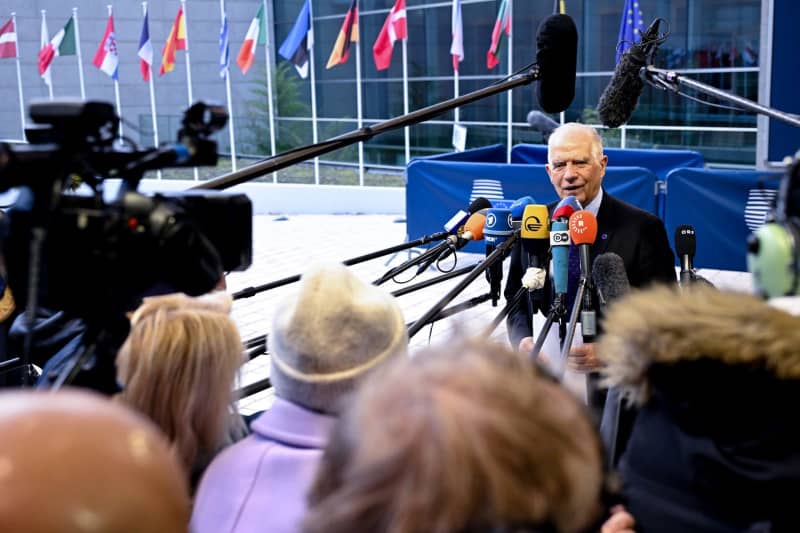EU foreign policy chief Josep Borrell announced on Monday he wants EU foreign ministers to debate possible violations of international humanitarian law by Israel at their next meeting, warning trade ties could be at risk.
Borrell said the discussion was necessary as the status of international humanitarian law in Lebanon and Gaza was “very much worrisome.”
The outgoing top EU diplomat, vocal in his criticism of Israel, was making a last push for the European Union to address Israel’s conduct in its response to the October 7 Hamas terror attacks.
Spain and Ireland had already suggested several months ago that a partnership agreement covering industry, energy, transport and tourism between the EU and Israel should be scrutinized.
According to Borrell’s previous statements, the European Commission could propose suspending the agreement if Israel no longer adheres to its basic principles.
Critics of Israel point out that the agreement stipulates that relations between the parties are based not only on the principles of democracy, but also on respect for human rights.
The EU actually hoped to discuss the situation in the Gaza Strip and the accusations against Israel within the framework of the agreement’s association council.
However, no deal has been reached with the Israeli government on holding such a meeting for several months.
Borrell also said that the humanitarian aid arriving in Gaza was at its lowest level since the beginning of the war.
At their meeting on Monday, EU foreign ministers struggled to agree on a response that could help stop the fighting from escalating into a full-scale regional war in the Middle East between Israel, Iran and Iran’s proxies Hezbollah and Hamas.
Luxembourg Foreign Minister Xavier Bettel was blunt in his assessment that “almost nobody” listens to the EU anymore. The EU is a “confetti” of positions on the international stage, he said.
Talks took place in Luxembourg a week after the first anniversary of the October 7 attacks on Israel that saw Hamas-led militants kill 1,200 people and abduct about 250 others to Gaza.
However, international criticism of Israel’s retaliatory campaign in the coastal strip is immense after a year of war has left an estimated 42,000 dead in Gaza – and fighting now worsening in Lebanon.
Austrian Foreign Minister Alexander Schallenberg stressed that Israel has been in an “unbelieveably difficult situation” since October 7 and that Hezbollah has continuously attacked the country from Lebanon since then.
Borrell voiced his frustration over opposing positions of the bloc’s member countries on an increasingly tense Middle East conflict.
“It takes too long to say some things which are quite evident,” he said. “It’s quite evident that we should be against Israeli attacks against UNIFIL, especially because our soldiers are there,” he said.
Borrell referred to a joint EU statement on recent attacks on the UN peacekeeping mission in southern Lebanon, issued on the eve of the gathering.
The EU statement on the incidents involving several injured blue helmets was supposed to have been published at the end of last week.
However, the process dragged on due to a blockade by the Czech Republic, an EU member state with particularly close ties to Israel.
EU diplomats surmised on Monday that the government in Prague had even coordinated its actions with the Israeli government.
With Israel firing on UN peacekeeping soldiers’ positions in Lebanon, more EU countries must stand up “on the side of what’s right and proper and moral,” Irish Foreign Minister Micheál Martin said.
Martin said he was surprised that some EU countries “have not been as forceful or as strong in supporting UN peacekeeping troops as they could be.”
Of the top 10 countries contributing soldiers to the UNIFIL peacekeeping mission, four are EU members, namely Italy, Spain, France and Ireland.
EU countries are also “strongly divided” over arms deliveries to Israel, Borrell said, after Spain and France called for an embargo, while other EU countries want to deliver more weapons.
French Foreign Minister Jean-Noël Barrot said it does not make sense to supply weapons to Israel while calling for a ceasefire in Gaza and Lebanon. “It’s a question of consistency,” he said.
Read the full article here
